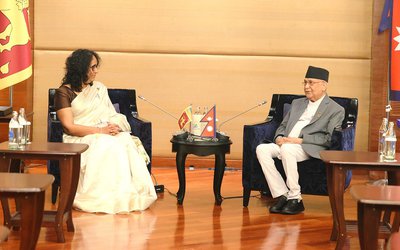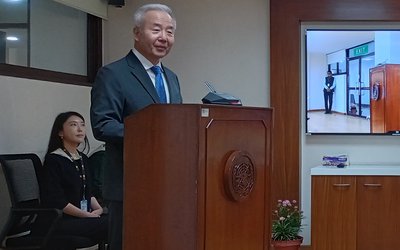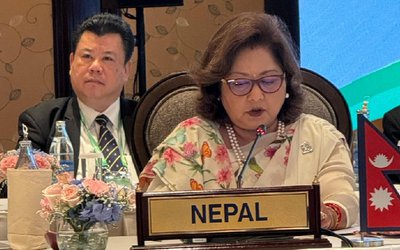
Although Japan is geographically far, it has played an important role in Nepal's modernization and development. Japan has provided valuable technical assistance to Nepal by offering opening to Nepalese students access to world class Japanese universities.
Japanese universities are providing high quality education in a range of fields from political to social sciences. As Nepal is in the process of development, most of the graduates of Japanese universities are in technical fields.
Although the recent Japanese aid to Nepal has declined a bit, Japan’s contribution to modernization and development of Nepal is immense. Whether it is in hydropower, drinking water, electricity improvement, urban transport, civil aviation, road, agriculture, geology, health and bridges, Japan has contributed immensely in Nepal.
Japan has lent its helping hand where Nepal needed it. Equipping the radar facility at Tribhuwan International Airport, Japan has helped enhance aviation safety in Nepal. Similarly, Kulekhani Hydropower Project, the first reservoir project and Tribhuan University Teaching Hospital are other major areas with long term Japanese support in Nepal. By modernizing agriculture sector and fishery, Japan helped to uplift the life of rural poor of Nepal.
Although it has been delayed for some time, the B.P. Highway, which links Kathmandu to Bardibas, will reduce the travel time by half to reach Nepal’s plains from Kathmandu. This is a second highway to link Kathmandu valley with the Southern plains.
“Nepal has been passing through a transition period. Everybody is hoping for an early return of stability and economic progress. Japan also wishes an early constitution and stable and durable government in Nepal,” said Japanese ambassador to Nepal Masashi Ogawa.
Organized by JUAAN, Nepal-Japan Academic Forum is first of a kind proved forum for Nepalese and Japanese scholars to share their perspectives on development of Nepal. “The discussion topics of the day are concerned with modernization, development and education in Nepal from a Japanese perspective. I believe that these are relevant and important considering the nation and people,” said the Japanese ambassador.
Along with Nepalese scholars, two scholars from Japan Professor Tatsuro Fujikura of Kyoto University and Professor Miki Sugimura of Sophia University, who have both had a long term relationship with Nepal, presented their papers.
“Though geographically different and distant, Nepal and Japan enjoy excellent bilateral relations and treasure very warm, cordial and friendly relations since centuries,” said foreign minister Mahendra Pandey. "Japan has been a major country supporting the development activities in Nepal. The government of Japan has been supporting several projects in Nepal in various areas including agriculture, hydropower, civil aviation and infrastructure.”
As Nepalese students who returned from Japan have been contributing in various sectors of Nepal, the celebration of the 40th anniversary of JUAN has its significance. “I am happy to learn that JUAAN, as an association of Nepalese students who have returned to Nepal, is contributing to national development through conducting various activities. Nepalese who have learnt or worked in Japan could gain many of the novel and innovative skills, latest knowledge and techniques in their respective fields. After returning to Nepal, they could positively contribute to the development initiatives of Nepal,” said Minister Pandey.
Along with technical education, Nepalese scholars have also immensely benefited from other social sectors. “The number of students going in Japanese universities for political science and social sector has drastically increased in recent years. The education imparted by Japanese Universities is of highest quality and much relevance to the Nepalese context,” said Khadga K.C, associate professor of Tribhuwan University.
Addressing the program, president of JUAAN Dr. Ukesh Raj Bhuju said Japan’s contribution to Nepal’s overall development is immense. “ Japanese scholars have done a lot of study on Nepal’s Himalayas, plants and geology, much more than any scholar from the world,” said Bhuju.
- IME GROUP: Expands Into Paper Industry
- Mar 24, 2025
- CPN UML: Instigated By India
- Mar 23, 2025
- ADB’S CHIEF ECONOMIST: Nepal Reduces Poverty
- Mar 11, 2025
- FM DR. DEUBA: A Successful Visit
- Mar 11, 2025
- MD GHISING: Target Of Personal Grudge
- Mar 09, 2025















